Stratolaunch: Largest Aircraft Ever Built Will Launch Rockets Into Space
Getting into space hasn’t changed much since the Russians launched Sputnik into orbit, but that may be about to change.
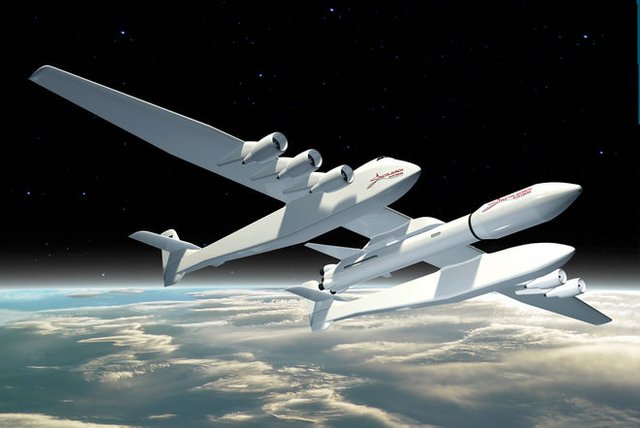
Ground launched rockets propel a payload into space, using more than 90% of the energy just to launch the weight of the rocket itself. Only a small percentage of that energy is used to lift the payload. Such a waste, but what if we could lower the requirements by starting the launch at a high altitude? The higher into the atmosphere you start the whole process, the less mass and thrust that rocket will need – and that saves money.
What I am talking about is an air launch of a spacecraft into orbit, the same thing that SpaceShipOne did in 2004 to win the Ansari X Prize.
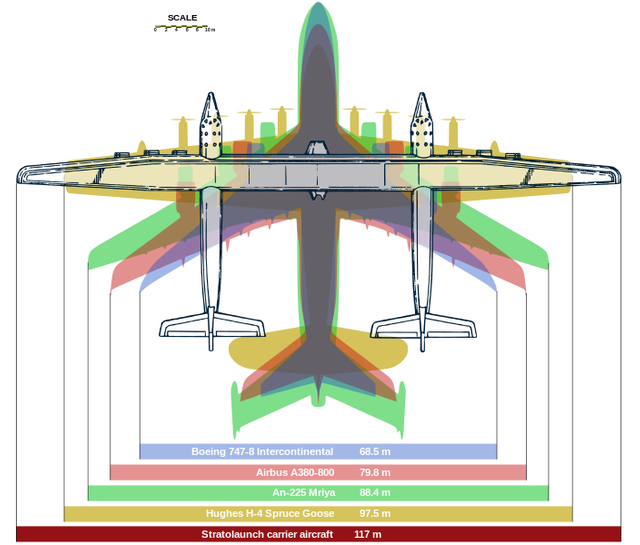
Deep in the Mojave desert at a place called Hangar 78, Billionaire Microsoft co-founder Paul Allen (who was also behind SpaceShipOne) is funding something similar, but much larger, named Stratolaunch Systems. Scaled Composites is building the aircraft under the direction of Vulcan Aerospace and when it is complete it will be the largest in the world, but not the heaviest because it is being made with lightweight materials.
Its unique design with twin fuselages will carry the spacecraft underneath the wings to an altitude of 30,000ft. Then the switches to release the rocket will be flipped and the Roc will turn sharply away. The rocket will angle its fins to climb into space and ignite its engines. Upon reaching an altitude of 298,000ft the first stage will break away and the second stage will fire, bringing the up to 13,500lbs of payload into orbit.
Initially the payloads will be cargo and satellites, but they are hoping to carry passengers later on, either government or private.
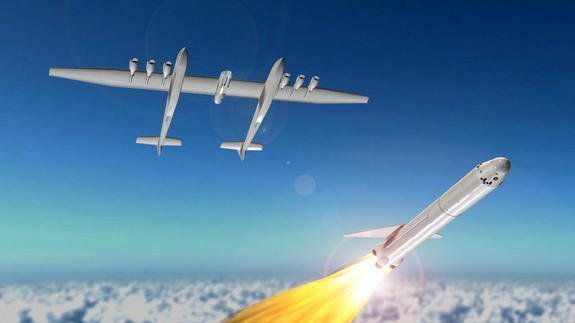
This isn’t the first time that an air launch system has been used, it is just the latest and the largest:
- 1963: The X-15 rocket plane reaches space after being dropped by a B-52
- 1990: Orbital Sciences (now Orbital ATK) is the first private space launch company after it launches a Pegasus rocket from a B-52
- 2004: WhiteKnight launches SpaceShipOne into space
This method of space launch has its own advantages and disadvantages:
ADVANTAGES:
- You don’t have to wait on the weather, fly the payload above or around it. “Any orbit. Any time.”
- Works well with reusable systems
- Reduced delta V needed to orbit, resulting in less cost
DISADVANTAGES:
- Limited payload size
- Airplane launch system could generate lateral forces that could damage payloads
- Elon Musk says the advantage is minimal, around 5%, over ground based launches
The whole project started with Elon Musk being a partner – he was contemplating using the system to launch SpaceX’s Falcon rockets , but he backed out after seeing what he saw as that minimal advantage. Allen pressed on, planning to service the needs of numerous companies to get into orbit.
"I think that access to space is going to change the way we live and it's going to continue to change for decades into the future. The only limit is going to be the cost and convenience of access to space and each company has its own idea of how to do that," – Chuck Beames, president of Vulcan aerospace
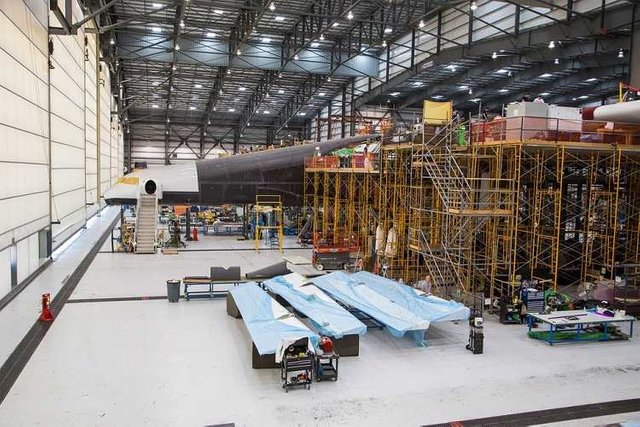
The main goal is to make access to space more affordable, because the cheaper it is the more companies and people that can partake in the benefits of it. The aircraft is approximately 75% complete and they are expecting to start operations by the year 2020.
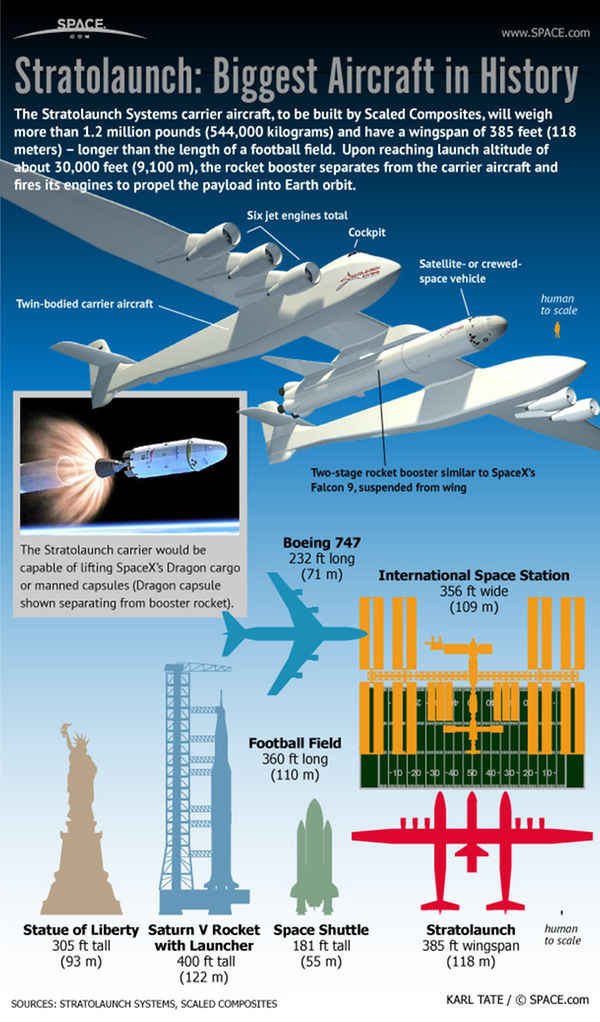

What we need is to build a station on the moon and do our missions from there with less gravity, and plenty of materials for construction we just need the robots and man power with enough food and water to build the robots there and leave everything to be remotely controlled from earth.
That would be a great idea! Did you know the government made plans to build an outpost on the moon, starting construction in 1965? I made a post on it about a week ago. If they went through with those plans, who knows what would be happening right now!
I loved the White Knight launch system! I didn't know others were looking at this as a viable option for launches!
Let's hope that they are successful, the more the merrier in my opinion on private space companies.
This is an interesting step forward for space technology. I look forward to hearing more about how this plan goes. Thank you for sharing this with us all. :D
And thank you for commenting! I love to hear from my readers. :D
Someone needs to build a serious heavy hauler.
(note the jumbo jet in the middle?)
That's old news. Bigger and better is planned.
In 2002, a balloon named BU60-1 attained 53.0 km (32.9 mi; 173,900 ft).
that's a little bit further up than an airliner...(about four times as far maybe?)
It'd for certain use a LOT less fuel.
I have heard of them experimenting with dropping rockets off of hot air balloons, it does seem to have some advantages.
yeah... interesting.
Fantastic post, @getonthetrain. Stratolaunch sounds like an amazing achievement. Can't wait to check out the test flight footage when it eventually arrives.
You're killing it with your posts and I just couldn't be happier for you. Keep it up, buddy! :)
Thank you so much @ezzy! :D
lol, I just read about in a news site
Oh shoot, I had this written up on Thursday and just got around to posting it today! Did I miss the boat?
well, I don't know, you got my vote anyways :P
It's just funny. People write about the same things newssites do.
excellent post congratulations